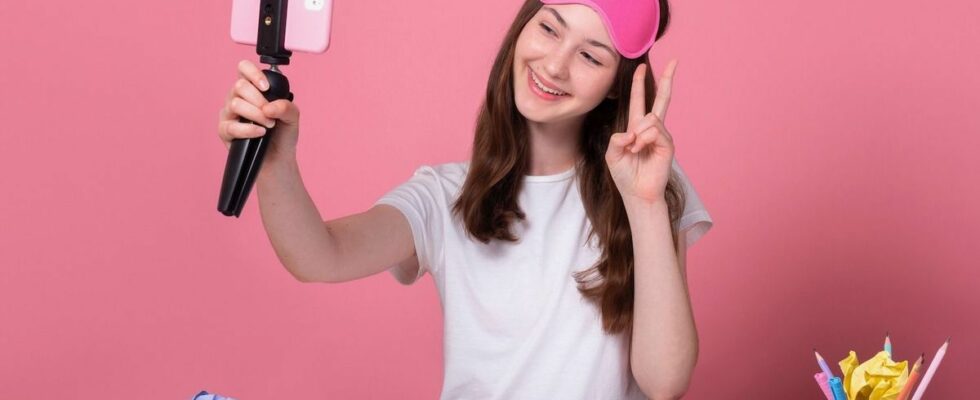Published on
Updated
Reading 2 min.
in collaboration with
Amélie Boukhobza (Clinical psychologist)
Have you heard of the “Mid girl” on TikTok? It’s about a young woman who demeans herself physically to receive compliments. A trend not to follow, according to our expert psychologist, Amélie Boukhobza.
Funny trend. On social networks, women consider themselves neitherugly“, neither “beautiful” publish videos in which they openly criticize their physique. This phenomenon has a name: “middle”, which means middle in French.
“Mid girl”: what does this phenomenon consist of?
With the hashtag #MidGirls (134.7 million posts), Internet users who do not correspond to beauty standards list the reasons that make them girls less attractive than others.
“I know I’m a mid girl because right now I need a filter to talk to you. I can’t see the flaws on my face, it scares me.”, confides a tiktoker in her video. “I’m an average girl because I don’t fit at all into the beauty criteria of 2024: brunette, tall, thin, small nose, big mouth or blonde with blue eyes. I’m really the complete opposite“, details another.
However, according to Marie-Estelle Dupont, psychologist interviewed by our colleagues at 20 minutes, this type of speech is very harmful. “These young women are self-deprecating, as if it were to exonerate themselves, protect themselves or anticipate bashing on social networks.she deciphers.
According to the professional, this poor relationship with oneself has been accentuated with the content of certain influencers and the “beauty” diktats that young women desperately try to follow.
“Today, young people are the segment of the population with the greatest demand for cosmetic surgeries.“, she affirms. This observation maintains a “logic of performance but also of non-differentiation”, by wanting to normalize a certain body prototype.
Good in his body, good in his head!
Breaking out of the shackles of beauty
To counter this “devaluing” and “dehumanizing” tendency, there is only one rule: put an end to this unjustified self-denigration, which risks leading to self-image disorders (anorexia, bulimia, dysmorphia, etc.). ).
As Amélie Boukhobza likes to remind us, “You are beautiful. Because beauty is not found in labels. Beauty is not at the level of the canons imposed by society, beauty is elsewhere. It resides in everything else: the unforeseen, the unfinished… It resides in the indefinable. The indefinite. Beauty is linked to the supple, the fluid, the incomplete, the inadequate… While we are trapped by the ready-made models imposed by society, beauty invites us to its very essence: freedom… Out of all requirements. Out of any obligation. Beauty is only beautiful because it is free… Get out of the category of totalitarian imperative to which you classify beauty!”
And to start freeing yourself from diktats, what’s better than to stop comparing yourself?

